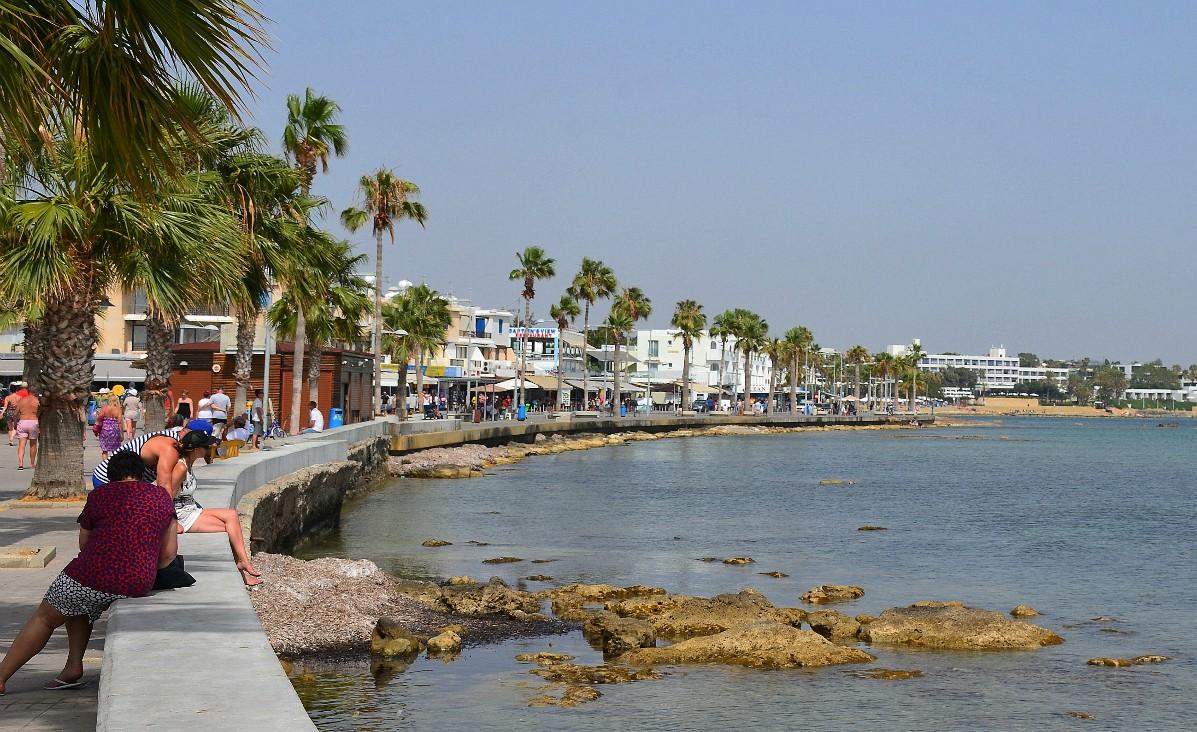Bright sunshine, warm breezes, trips to the beach and jogs along the promenade before your first Zoom meeting of the day, morning coffee with a sea view — it's no wonder that Cyprus attracts expats like a magnet. Sometimes it seems that Cyprus is a paradise made for remote workers. Freelancing is becoming increasingly popular on the island. However, when considering a move, you are likely to have many questions and concerns. If you're wondering whether Cyprus is suitable for remote work, we'd be happy to tell you everything you need to know about living and working on the island. Would you like to swap rain and slush for sunshine and blue skies? Then stay with us!
Digital nomad visa
In order to live and work remotely in Cyprus legally, you need to obtain the relevant documents — specifically, a digital nomad visa. Cyprus has recently increased the annual quota for these visas to 1,000. The application process is straightforward — you just need to provide proof of remote work and an income of more than €3,500 per month. For families, the monthly income must be at least €4,200 plus 15% for each child. You will also need to provide a rental agreement or proof of payment for accommodation. The visa is initially issued for one year, with the possibility of extension for a further two years. Please note that you are only permitted to work for foreign companies. Working for local companies is prohibited.

Freelance life in Cyprus
Climate
Cyprus is one of the sunniest places on the planet, so you're guaranteed your daily dose of vitamin D and a positive mood every day. Summers here can be very hot, especially in August. Winters, on the other hand, are quite mild compared to northern Europe, with daytime temperatures usually reaching between 10°C and 15°C. However, it can be cooler in mountainous areas and in Nicosia, with temperatures ranging from 5°C to 8°C, and frosts are sometimes possible.
Internet
All major cities have well-developed internet infrastructure. Fibre-optic internet speeds reach 1 Gb/s, while cable internet speeds are around 150 Mb/s. 5G mobile communications are widespread on the island. All cafés, restaurants and other establishments have Wi-Fi access. However, the quality of the internet in remote and rural areas leaves much to be desired. A standard package plan costs around €40 per month.
Coworking spaces
In Cyprus's major cities, there are coworking spaces to suit every taste, ranging from atmospheric vintage-style spaces to modern offices where you can rent a separate room or a 'hot desk', as well as access to multimedia rooms and mentoring programmes. There are places for families with children and freelancers with pets.
Basic spaces are inexpensive, averaging €135–200 per month. A full office with access to multimedia rooms costs €300–390 per month. A day pass to a standard coworking space costs around €10 and an office costs from €45 per day.

Which city should you choose?
Nicosia
Nicosia is the administrative, business and educational capital of the island. Remote workers will find everything they need for a comfortable life and work there, including a wide selection of coworking spaces and well-developed infrastructure. Although the city is not located on the coast, it has a lot to offer, including a historic centre full of local charm, Venetian walls and modern architecture.
Limassol
Limassol is the liveliest city in Cyprus and a true melting pot of different cultures. It also has a reputation as the main local business centre, where the largest number of expats live and work. Located on the coast, it offers good living and working conditions, combining modern amenities and infrastructure with all the advantages of living by the sea.
Larnaca
This compact city on the southeast coast allows you to go to the beach and then immediately start work. Its main distinguishing feature is that many cafés and co-working spaces are located a stone's throw from the waterfront. Larnaca is gradually turning into an IT hub today, attracting more and more expats and freelancers.
Paphos
This cosy city in the south-western part of the island is ideal for remote workers seeking personal space and harmony with nature. Although it has the highest percentage of expats, many of them are families or retirees. However, the number of digital nomads has also been growing recently, and active communities of freelancers are emerging.

Accommodation
Co-living
is a relatively new concept designed specifically for remote workers. It usually consists of a private bedroom in a villa equipped with the latest technology and located within the city limits. The price includes fast Wi-Fi, access to a co-working space, and regular cleaning services. The main feature of this type of accommodation is that it combines privacy with networking opportunities. Flexible rental terms allow you to rent accommodation for a month at a cost of around €1,500–2,000.
Short-term rental
This option offers good rental terms for short periods, from a couple of weeks to several months. At the same time, remote workers are not required to sign a contract or pay a deposit. Usually, all houses and apartments are new or well-renovated, boasting excellent design, high-speed internet and a convenient location. Such accommodation is more expensive than long-term rentals, costing from €470 per week.
Long-term rental
This option is suitable for those planning to stay in Cyprus for at least a year. It is more economical, with the average cost of renting a studio or one-bedroom apartment ranging from €650 to €850 per month, depending on the city and location. However, you will need to sign a lease for at least 12 months and pay a deposit equivalent to around one month's rent.

Living expenses
Basic living expenses in Cyprus are approximately €500–1,100 per person per month, excluding rent. The main expense is electricity. A standard bill can be €150–200 per month. Compared to other EU countries, Cyprus is fairly average — prices are slightly higher than in Greece or Malta, but significantly lower than in Northern European countries.
Pros and cons of Cyprus for freelancers
Pros:
- Warm, mild climate
- Quality of local food: the Mediterranean diet, with fresh vegetables and fruit available all year round.
- Good tax conditions, including the possibility of obtaining Non-Dom status
- Affordable prices compared to other countries.
Cons:
- The main problem in Cyprus is that it is difficult to get around without a car.
- Internet speeds are slower in rural areas, and there are occasional interruptions.
 Life in Cyprus is more relaxed — there are no big cities and cultural life is not as vibrant.
Life in Cyprus is more relaxed — there are no big cities and cultural life is not as vibrant.
As Cyprus is an island, you can only travel there by plane and ferry connections are quite limited.
However, freelancing in Cyprus offers an excellent work-life balance. Modern, safe cities; a close-knit community of digital nomads; regular events; and a growing number of co-working and co-living spaces make freelancers feel at home here. Why not join them? Cyprus is waiting for you! If you have any more questions, please share them in the comments.
Read also:

